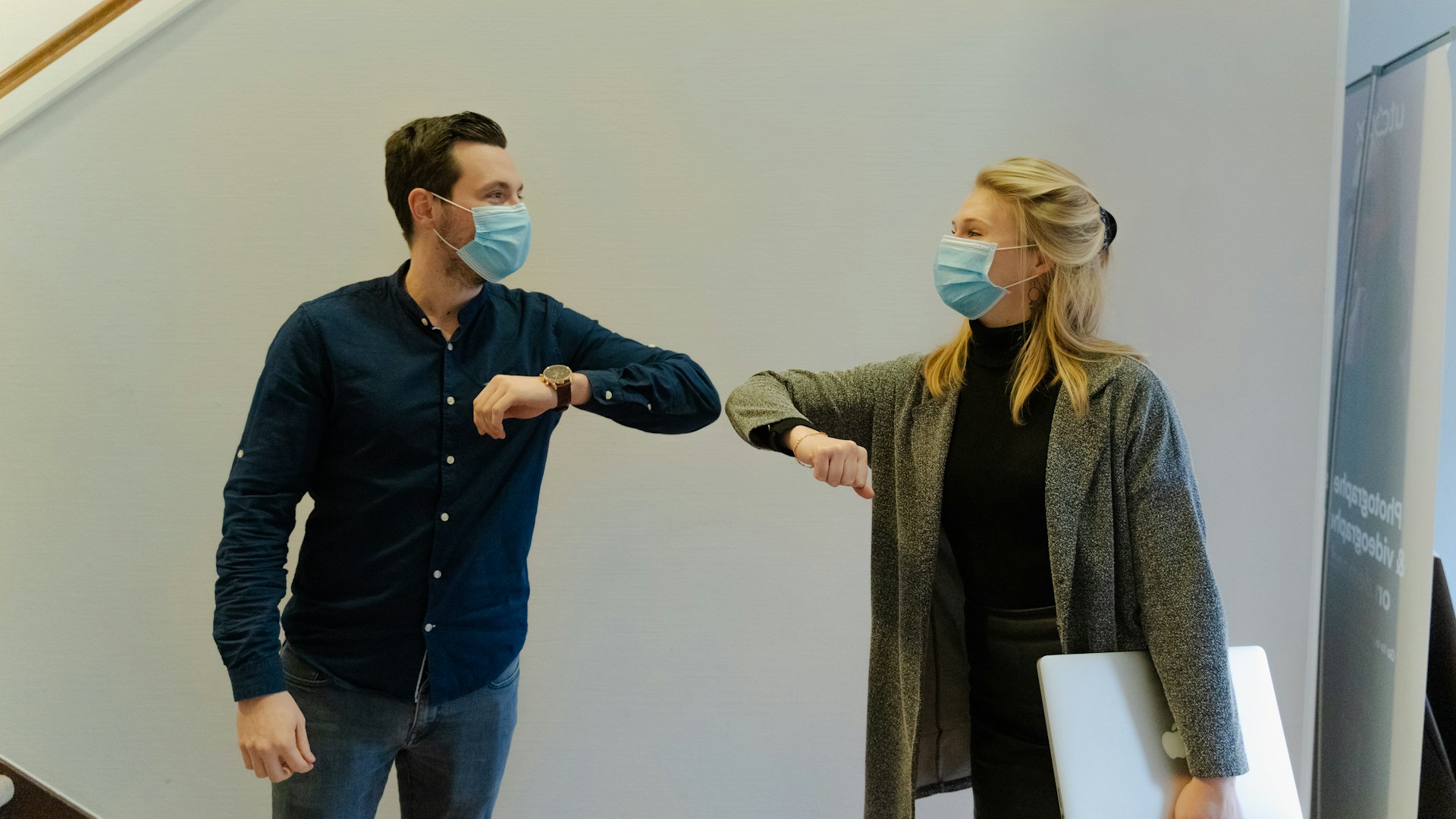COVID-19 taught us much more than science—it showed that global collaboration should be at the heart of future pandemics. Photo credit: Maxime via Unsplash
On December 31 2019, the World Health Organisation (WHO) China Country Office received an alert concerning 44 cases of a disease of unknown cause in Wuhan, China. Meanwhile, the rest of the world remained largely unaware of the dramatic disruption and change that would soon follow. The COVID-19 pandemic resulted in major economic and social disruption, transforming the global health landscape. The lessons learnt from this challenging period have catalysed research on infectious disease and global health policy that aim to enhance pandemic preparedness and lay the foundation for a post-COVID-19 era. In our increasingly interconnected world, the threat of another pandemic looms and the need for better responses is more pressing now than ever.
Unprecedented Challenges
Recent encounters with Severe Acute Respiratory Syndrome (SARS) and Middle East Respiratory Syndrome (MERS) highlight how the threat of coronaviruses has been brewing for some time. Given the recurrence of infectious diseases throughout human history, one might expect that we would have been equipped to predict and prepare for this pandemic. However, the COVID-19 pandemic was not without its own challenges. Infectious disease modelling provided insights into the case fatality rates and the specific demographics most profoundly affected. Particularly, the older age demographic affected by COVID-19 and the unprecedented impact the virus had on those of Black or minority ethnic origin posed a major challenge in government strategy.
In addition, many had hoped that the virus would grow weaker. However, the mutating virus only led to the emergence of other harmful variants, exemplified by the formidable Omicron and Delta strains. The emergence of long COVID also emphasised the enduring and elusive nature of this virus. Despite our efforts to mitigate COVID-19, the virus still outraced us.
‘West is Best’: Lack of International Co-operation
Prior to the pandemic, there were multiple rankings placing the US and the UK at the forefront of pandemic preparedness. However, in the face of all these challenges, this evidently excluded a variety of important factors such as political will, leadership, mistrust in the government, and the willingness to learn from other countries. There was a pattern of the ‘West knowing best’ during the pandemic, which led to a lack of international coordination. Despite the study of a range of SARS-like coronaviruses and prediction of potential impacts, global levels of response were not uniform. The consequence of this was fragmented coordination and transparency globally, which is vital in informing pandemics. The lack of international coordination included delays in addressing the airborne transmission of the virus and implementing suitable measures, a shortfall in global support for low- and middle-income countries (LMICs), and ultimately, failure to implement a global safety net to protect vulnerable populations. This, in addition to the influence of misinformation, resulted in hesitancy around many public health precautions such as vaccines. The failure to tackle systematic disinformation and the lack of transparency weakened the global response.
Looking ahead, the next step in pandemic preparedness is to bring in a new era of multi-national cooperation and to establish stronger guideposts to strengthen responses to a future threat. Building on our existing knowledge on viruses, reservoirs and drivers of disease emergence are essential in mitigating against a future pandemic threat, and this demands a coordinated, well-funded global health initiative and a commitment to research effort.
Global Health Disparities
However, implementing an internationally coordinated response is difficult in a world of disproportional disparities. Even pre-pandemic, health inequalities across nations highlighted how global health needs to be decolonised to address immense power imbalances that underpin inequalities across countries. The COVID-19 pandemic amplified the effect of many systemic and structural health inequalities such as race, occupation, and poverty. As mentioned previously, the virus disproportionally affected many ethnic minorities in higher-income countries (HICs), however HICs made much more gradual and effective progress whereas LMICs still faced the threat of the virus, largely due to vaccine inequity. Epidemiologists worldwide highlighted how the longer the virus persisted, the more opportunity it had to mutate into variants that could evade vaccines, therefore rapid vaccine administration was crucial. But vaccine inequalities were prominent. HICs were accused of stockpiling vaccines for booster shots despite the WHO’s recommendation for boosters to be researched for immunocompromised and older individuals.
Vaccine inequity is not a novel issue, and we should have been prepared to efficiently tackle this. This is reminiscent of past occasions in which drugs were saving lives in the West whilst disease raged in lower income countries. Antiretroviral drugs for HIV only reached lower-middle-income countries 10 years following their discovery, amplifying the HIV crisis in the Global South.
For future pandemics, high-income countries should extend their response to a global level and adjust vaccine policy to distribute supplies based on mortality and morbidity rates globally and not just in their own country. This has been tackled by various initiatives, for example, the International Monetary Fund focuses on investment into vaccine production in Africa. This would reduce the vaccine disparity in low-and middle-income countries and decrease the number of infected individuals globally. As the Director-General of the WHO, Dr. Tedros A. Ghebreyesus, articulated, ‘No-one is safe until everyone is safe’.
The Legacy of COVID-19
If there is a main takeaway from the COVID-19 pandemic, it is that the focus should be global. The selfishness of the West has continued in past global health challenges and COVID-19 is no exception. Time and time again, history reminds us that in the face of global challenges, solidarity and moral obligation is required, and this extends to bridging access between HICs and LMICs. COVID-19 is not a disease of the past. As of 2024, the virus circulates, although there has been a shift in perspective from anticipating the end to effectively learning how to live alongside the virus. Navigating the aftermath of the pandemic through shared efforts to address health challenges that transcend borders offers the potential of tackling future health challenges more effectively.





